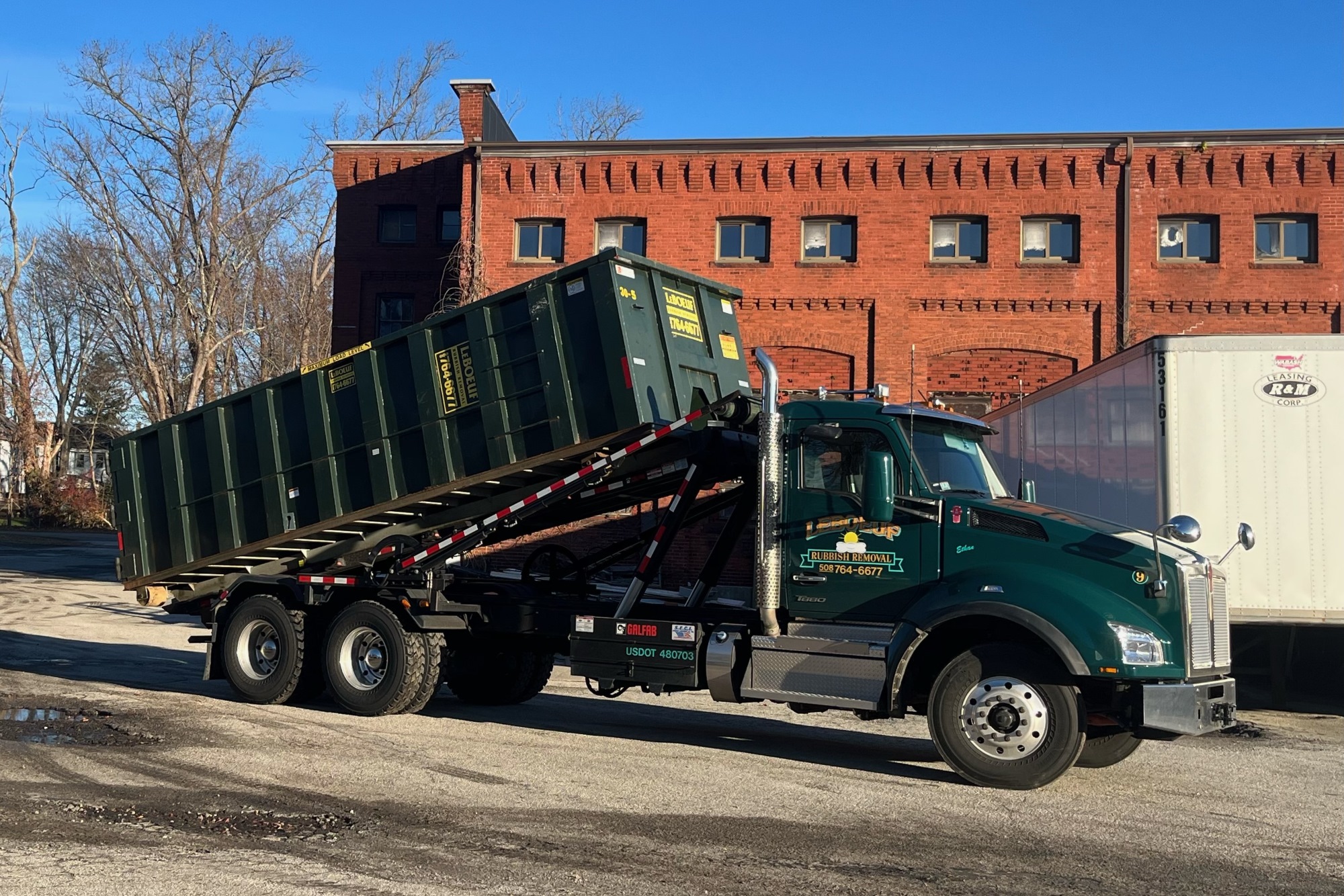Due to the inclement weather coming for Monday January 26 Leboeuf Rubbish has decided to close. All routes will be on a one day delay.
Front Load Dumpsters vs. Roll-Off Dumpsters for Businesses
If you’re a business owner, the word “dumpster” might bring about two similar mental pictures: a front-loading smaller dumpster for commercial garbage disposal and a much larger truck-carried dumpster for large debris-generating projects such as cleanouts and demolition. However, the line between them and which fits your commercial needs can get blurred. So today, we’re going to compare front load dumpsters to roll-off dumpsters for businesses so you can get the right one for the job.
Front Load and Roll-Off Dumpsters: What’s the Difference?
While the word “dumpster” might be used for both of these products, they have some significant differences in terms of size, delivery, and use cases. We’ll be using our own LeBoeuf commercial dumpster and dumpster rental services for comparison, but these apply generally as well.
- Dumpster Capacity: Front-loading dumpsters have a capacity for 2 to 10 cubic yards, while roll-off dumpsters come in various sizes of 10,15, 20, 30, and 40 cubic yards.
- Staging and Operation: Front-loading dumpsters need space in front and above for the truck to pick up and empty the dumpster. Roll-off dumpsters need space all around for the truck to tilt the dumpster onto the bed and load it.
- Delivery & Contract: Front-loading dumpsters are a regularly scheduled pickup and require a contract. Roll-off dumpsters are individually rented with fees for late return and failing other best practices.
- Types of Waste Allowed: Front-loading dumpsters have the same municipal restrictions as residential garbage. Roll-off dumpsters are often categorized as demolition debris, which allows for more types of waste. See “Understanding Waste Disposal Bans” below.
Understanding Waste Disposal Bans
In the two states we operate, Massachusetts and Connecticut, there are similar laws restricting what can be thrown away. Known as waste disposal bans, these ordinances generally restrict certain items from entering the landfill. These include recyclables, bulky and white goods, hazardous waste, and food waste if a business meets certain requirements. It also includes construction materials, so if your project requires discarding those, you’ll need a roll-off dumpster.
Learn more about this here: Understanding Waste Disposal Bans for Massachusetts and Connecticut.
Picking the Right Dumpster for the Situation
So, what dumpster do you need for your business? Let’s look at factors that will help you determine which dumpster you need, including situations where you’ll want both.
Amount of Business Garbage Generated
How much waste does your business generate? If your small business generates very little waste, you might be able to get away with one or more carts, 95-gallon garbage and recycling bins. If that’s not enough, a front-loading dumpster is your next option. From there, you might need a compactor to fit your needs. For one-time projects or work sites, you’ll want a roll-off dumpster. Learn how to properly size the dumpster you’ll need.
Types of Commercial Waste
What kind of waste does your business generate? For construction sites, you’ll need a dumpster that can be categorized as demolition debris. If you generate a lot of organic and food waste, you’ll need another dedicated service for that. Certain products, like mattresses and boxsprings, won’t be allowed at all.
At LeBoeuf Rubbish Removal, we offer comprehensive commercial services, from carts and front-loading dumpsters to compactor installation, servicing, and dumpster rentals. Learn more on our commercial services page. There’s also overlap with our residential services; condos and apartments can make use of both types of dumpsters as well. Contact us today to get started and learn how we can help your business better handle waste. We’re at your disposal.



